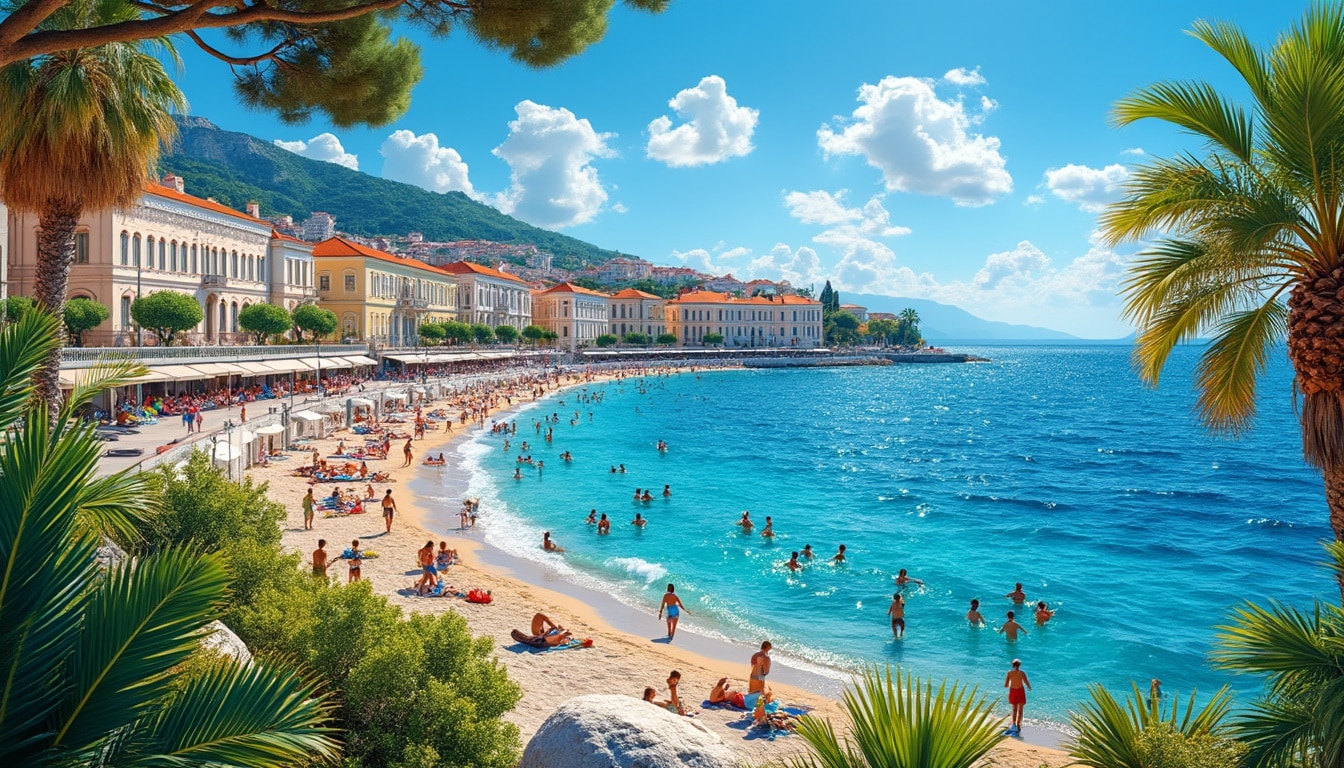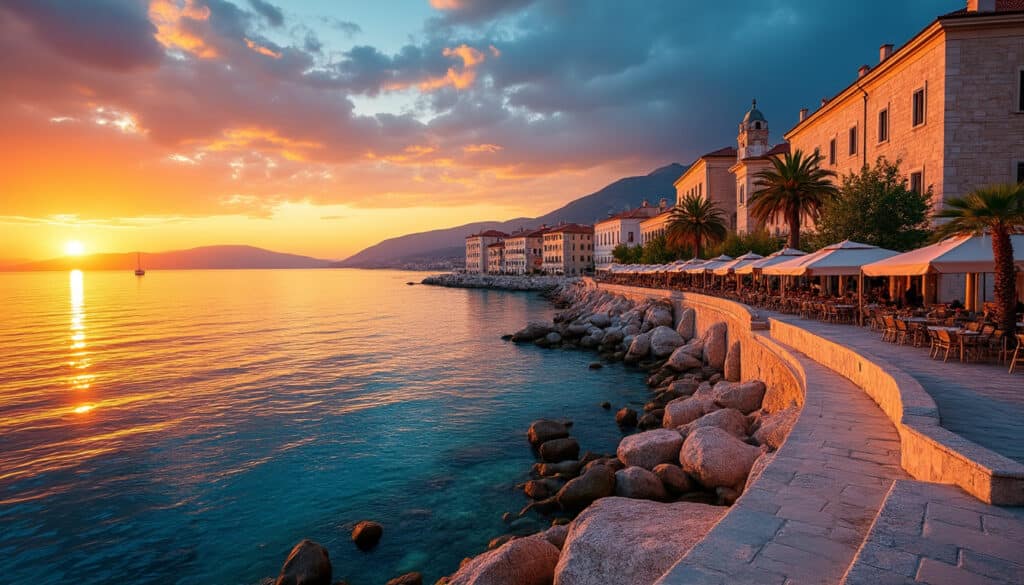Split, one of Croatia’s most vibrant coastal cities, is renowned not only for its rich cultural heritage and stunning landscapes but also for its unique climate. Travelers and residents often find themselves captivated by the mild and pleasant weather that graces this Adriatic jewel almost all year round. Whether you’re planning a visit to explore the Diocletian’s Palace or simply enjoy the sunny beaches, understanding the weather patterns in Split can significantly enhance your experience. From the gentle sea breezes to the radiant Mediterranean sun, Split’s weather offers a delightful balance that both charms and comforts its inhabitants and visitors alike.
Understanding Seasonal Variations in Split’s Climate
Split experiences a classic Mediterranean climate characterized by hot, dry summers and mild, wet winters. These seasonal variations greatly influence the lifestyle of its residents and the activities available to visitors. During the summer months, temperatures in Split can soar to an average high of around 30°C (86°F), making it the ideal time for beach enthusiasts to indulge in the crystal-clear waters of the Adriatic Sea.
Spring in Split usually introduces a gentle warmth, with temperatures gradually rising from a modest 15°C (59°F) in March to a more comfortable 24°C (75°F) by May. This season is marked by a profusion of wildflowers blooming across the Dalmatian landscape, offering stunning vistas both in urban parks and the surrounding countryside. It’s also a perfect period for hiking and outdoor exploration.
- 🌼 Average temperature in March: 15°C
- 🌸 Average temperature in May: 24°C
- 🛤️ Ideal for nature walks and sightseeing
An exploration of the weather in Split during the fall reveals another side of the city’s charm. September and October maintain agreeable warmth, hovering between 22°C (72°F) and 26°C (79°F). This transitional period offers a serene backdrop for wine tours and gastronomic adventures, as the tourist crowds begin to diminish.

The cooler months, comprising winter and late fall, see temperatures dipping to a more brisk 9°C (48°F) to 14°C (57°F). Rain is more frequent, yet snowfall is a rarity in the city itself, providing a more temperate winter experience compared to continental climates. For those interested in a cozy, tranquil atmosphere, this time of year provides a unique opportunity to delve into indoor cultural experiences, such as visiting museums or enjoying local cuisine.
The Role of Sea Winds
The influence of the Adriatic Sea cannot be understated when discussing Split’s climate. The bura and scirocco winds play a pivotal role in shaping the local weather patterns. The bura is a dry, cold northern wind that sweeps through the region, often bringing clear skies and refreshing air. On the other hand, the scirocco, a warm, humid wind, typically arrives from the southeast, occasionally bringing moisture from the Mediterranean. These winds contribute to the dynamic weather experiences and are a unique feature of Split’s meteorological identity.
Average Monthly Temperature and Weather Conditions in Split
Understanding the average monthly weather patterns in Split can help visitors plan their trips more effectively. Here’s an overview of what one can typically expect throughout the year.
| Month | 🌡️ Avg High Temp (°C) | 🌡️ Avg Low Temp (°C) | 🌧️ Rainfall (mm) | 🌞 Sunshine Hours |
|---|---|---|---|---|
| January | 11°C | 5°C | 83 | 150 |
| April | 18°C | 11°C | 78 | 219 |
| July | 30°C | 22°C | 28 | 347 |
| October | 22°C | 14°C | 113 | 207 |
Visitors during the peak summer months will enjoy abundant sunshine, with July offering the longest hours of daylight, averaging over 347 hours of sunshine. This period is perfect for beach activities, sailing, and exploring the coastal stretches of Split.
Rainfall is relatively scarce from late spring to early fall, with July receiving the least precipitation. However, the city becomes a bit more humid and wet as October approaches, paving the way for the rainy winter months ahead. Despite this, the weather remains quite mild, allowing for outdoor activities with minimal interruption.
Impact of Sunrise and Sunset Times
Split’s position along the Adriatic coast offers not only beautiful weather but also long, enchanting days in the summer. The sunrise and sunset times play a significant role in the city’s lifestyle and tourism activities. In the heart of summer, the sun rises as early as 5:15 AM and sets around 8:30 PM, providing ample daylight for explorations and events.
During the shorter winter days, the sun typically rises around 7:15 AM and sets at about 4:30 PM. This seasonal variation affects everything from business hours to the rhythm of daily life in Split, where locals and tourists alike adapt their schedules to make the most of the available daylight.
Humidity and Precipitation Trends in Split
Humidity levels in Split are an integral part of its climate, often influencing how the weather feels. Throughout the year, humidity averages around 70%, with slight variations depending on the season. The humid summer months can sometimes make the heat feel more intense, although the coastal breeze provides a level of relief.
Winter months typically endure higher humidity levels, coinciding with the increase in rainfall. The wettest month is usually November, featuring sustained precipitation that ensures the greenery of the region is lush and thriving. Visitors should prepare for the occasional downpour if traveling during these months but can look forward to clear, crisp vistas as the rainclouds part.
- 🌧️ Wettest month: November
- 💧 Avg annual humidity: 70%
- 🌦️ Typical rainfall: Moderate in winter, sparse in summer
For detailed insights into how precipitation affects local activities and travel plans, visit Rain and Precipitation in Split.
Weather Implications for Outdoor Activities
Given the mild, Mediterranean climate, outdoor activities are a major attraction in Split. Hiking in the hills surrounding Split, such as Marjan Hill, or embarking on cycling tours are popular choices for both locals and tourists. The spring and fall months are particularly favored for these activities due to the comfortable temperatures and lower humidity levels.
Water activities, including swimming, sailing, and kayaking, flourish during summer. The relatively calm seas and warm temperatures create ideal conditions for water sports enthusiasts and sunbathers alike. Conversely, the winter months see a shift towards cultural events and historic site explorations, as colder weather and rain make indoor pursuits more appealing.
For more information on seasonal activities to enjoy in Split, check out Seasons in Split.
Planning Your Visit Around Split’s Weather
When contemplating a visit to Split, aligning your itinerary with the city’s weather patterns can enhance your experience, whether you’re a sun seeker or a culture buff. Spring and early autumn are optimal times for those who prefer milder temperatures and fewer crowds, allowing for a more intimate exploration of Split’s monuments and nearby islands.
Summer, with its vibrant atmosphere and bustling beachfront, is ideal for those looking to partake in the full Adriatic coastal experience. Conversely, the quieter winter months offer a different kind of charm, inviting visitors to discover the city’s indoor attractions and cozy eateries.
- 🌻 Best time for sightseeing: Spring and early autumn
- 🏖️ Best time for beach activities: Summer
- 🍂 Best time for a tranquil escape: Winter
Planning your trip with these considerations in mind ensures a rewarding journey, one where the weather enhances rather than hinders your experiences. For more planning tips and weather forecasts, don’t hesitate to explore Split Holidays.
Unique Weather Events in Split
While Split enjoys a mostly predictable Mediterranean climate, unique weather events occasionally surprise both residents and tourists. These can include sudden summer thunderstorms, primarily in late August, or the rare chance of snowfall, transforming the city into a winter wonderland for a brief period. To learn more about these unique occurrences, visit Snow in Split.
Frequently Asked Questions About Split Weather
- What is the driest month in Split? 🌞 – July is typically the driest month, perfect for sunbathing and outdoor events.
- Does Split experience heavy snowfall? ❄️ – Snowfall is very rare in Split, with the coastal location keeping winters mild.
- How does the wind affect Split’s weather? 🌬️ – The bura brings dry and clear air, while the scirocco may increase humidity and rain.
- What’s the best travel season for outdoor sports? 🏕️ – Spring and early autumn offer ideal conditions for activities like hiking and cycling.
Understanding these aspects of Split’s weather not only prepares you for your visit but also helps you appreciate the intricate balance of nature that defines this stunning coastal city.
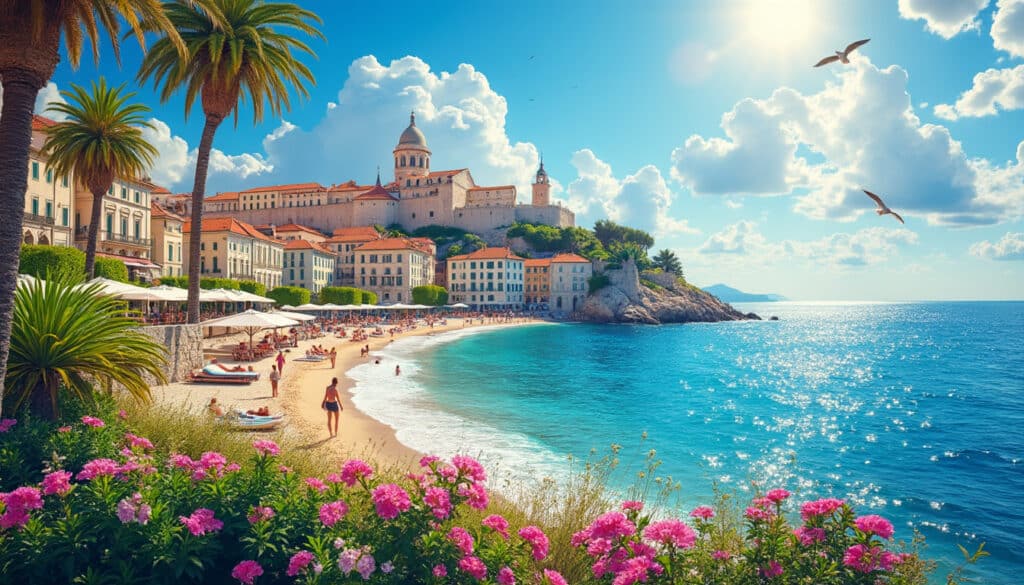
Embracing the picturesque views of the Dalmatian Coast, Split is not only a haven for history enthusiasts but also an intriguing destination due to its unique Mediterranean climate. This city perfectly combines cultural richness with weather nuances, offering a spectrum…
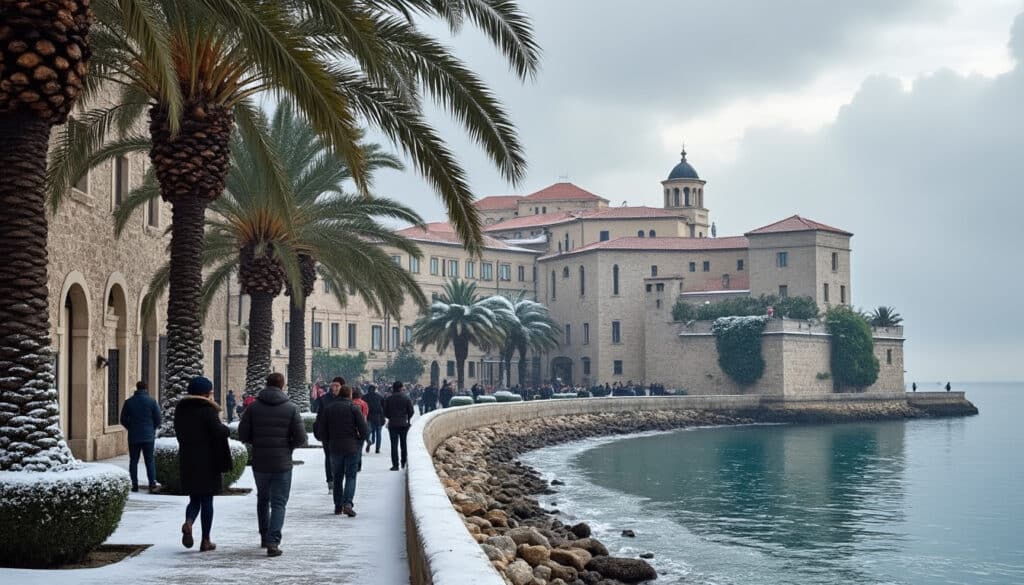
While Split, Croatia is widely celebrated for its radiant summers with tourists flocking to its historic sites and fetching beaches, the cold weather presents a different yet equally captivating charm. As a local guide with a keen interest in history,…

Flooding and natural risks in Split
The picturesque city of Split, renowned for its stunning architecture and rich history, faces a delicate challenge that requires immediate attention: the management of natural risks. As a city cradled along the Adriatic coast, Split enjoys the beauty of the…
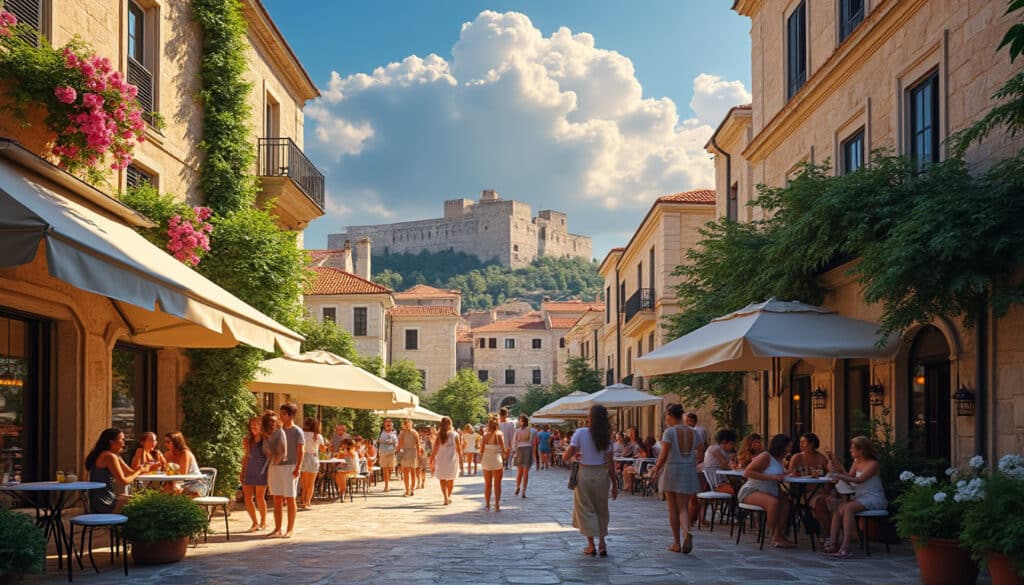
Split, Croatia is a city known for its stunning coastal views, rich history, and vibrant culture. Situated on the eastern shore of the Adriatic Sea, this picturesque location is not only famous for its architectural wonders and buzzing seafront but…

Is Split warm throughout the year?
Situated along the picturesque Adriatic coastline, Split, Croatia, is often heralded for its warm climate that seems to envelop the city with a perennial embrace. Let’s dive deep into understanding whether Split is indeed warm throughout the year and what…

Rain and precipitation in Split
Split, the charming city located along the Dalmatian Coast in Croatia, is known for its vibrant culture, historical sites, and scenic beauty. But aside from its cultural significance, the weather patterns, including rain and precipitation, play a vital role in…

Nestled along the azure Adriatic Coast, Split offers a distinct charm that varies with each season. Whether you’re drawn to the sun-drenched beaches in the height of summer or the tranquil ambiance of its less crowded months, Split promises an…

Exploring the weather patterns of Split, Croatia, offers a fascinating glimpse into the coastal charm and unique climatic conditions of this historic city. Whether you’re planning a visit or just curious about the year-round weather, understanding the monthly climate of…
Split, a picturesque city perched on the Dalmatian Coast of Croatia, is renowned for its stunning blend of ancient history and vibrant modern life. For both locals and tourists, understanding the nuances of its weather is crucial in ensuring a…
In Split, a city that gracefully hugs the Dalmatian coast, the heat of summer is not just a season but a vibrant experience. The panoramic views of the Adriatic, coupled with historic charm, render Split a captivating location. Summers are…

